Emory receives NIH designation as Autism Center of Excellence
 |
| One in 84 Georgia children is affected by autism. |
Emory has received $8.3 million from the NIH to fund a new Autism Research Center of Excellence (ACE). One of only three such centers nationwide, the ACE will bring together more than 25 researchers and physicians at the Marcus Autism Center at Children's Healthcare of Atlanta, the Department of Pediatrics in Emory's medical school, and Yerkes National Primate Research Center, along with collaborators at Florida State University.
The ACE will study risk and resilience for autism in infants and toddlers through research and screening programs in early infancy to help set the stage for changing autism’s course even before there is obvious disability. The ACE also will create a new community-based system of health care delivery for infants and toddlers with autism spectrum disorders (ASD).
 |
|
| Ami Klin |
|
The ACE will be directed by Ami Klin, director of Marcus Autism Center and a Georgia Research Alliance Eminent Scholar. “We have discovered that markers of risk for ASD can be identified early in infancy, although actual behavioral symptoms don’t emerge until the second year of life,” he says. “The brain depends on human experiences in early development, so if we can capitalize on that initial window when the brain is still able to adapt and change, we believe we can raise the prospects of significantly altering the natural course of ASD."
Two ACE research projects will focus on social visual and vocal engagement in ASD, building on earlier studies by Klin and collaborators that already have uncovered factors predictive of ASD in the first six months of life. Another project, at Florida State, will focus on early treatment to change the developmental trajectory of autism. A fourth project, at Yerkes, will connect eye-tracking studies and growth charts of social engagement along with genetics, behavioral, and brain-imaging studies in rhesus macaques.
The ACE also will promote education and training to disseminate best practices to primary care providers and to present information to affected families and the community at large. Read more.
Cellular imaging core integrates resources and services
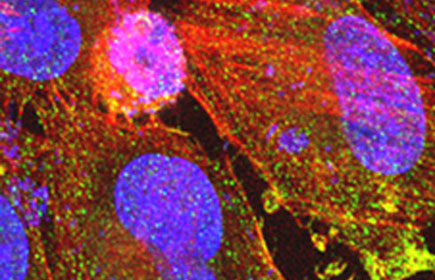 |
| Lung cancer cells: Blue is the cell nucleus, containing DNA; green is a tumor-suppressor protein; red is the cytoskeleton, which helps cells move. |
Winship Cancer Institute and supporting units in the medical school recently created the Integrated Cellular Imaging (ICI) Core, combining resources in four locations into one division. ICI offers 22 services with 16 different microscopes, making its imaging capabilities among the most extensive in the Southeast.
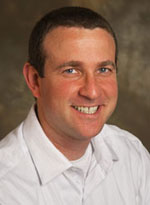 |
|
| Adam Marcus |
|
| |
|
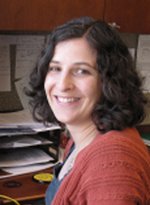 |
|
| Alexa Mattheyses |
|
The imaging technologies housed in ICI are now available to a broader group of scientists across campus and beyond. "We want to bring together the imaging community across Atlanta, and we are open to many different kinds of collaborations," says researcher Adam Marcus (hem-onc, Winship), ICI director. ICI is also led by researcher Alexa Mattheyses (cell biology), ICI associate director, and has five microscopists to provide consultation, assistance, and training on all the equipment.
"We can use some of these microscopes to see how cancer and other cell types move and grow in real time," says Marcus.
"You can watch how these cells interact with their environment and how they respond to therapy."
One of the types of imaging newly available in ICI is multi-photon imaging, which "allows you to see a single cell in a living mouse," says Marcus. The ICI also now has a "super resolution" microscope, the first piece of equipment of its kind on Emory's campus. "It breaks the optical-resolution limit and allows scientists to see a much higher level detail of proteins within the cell than was possible before, which helps in understanding signaling pathways and how they affect cell behavior."
For more information, contact ICI@icicore.com or see website. In addition to Winship, ICI supporting units in the medical school include pediatrics, physiology, and Emory Neuroscience NINDS Core Facilities.
Emory physicians conduct simulation training in Republic of Georgia
The Ministry of Health in the Republic of Georgia has awarded Emory physicians a $686,000 grant to establish simulation-based training programs for every physician and nurse in that country.
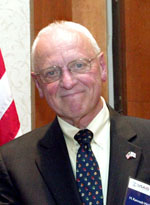 |
|
| Ken Walker |
|
| |
|
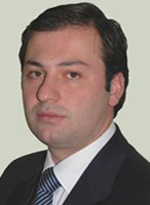 |
|
| Archil Undilashvili |
|
| |
|
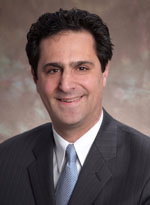 |
|
| Doug Ander |
|
Ken Walker and Archil Undilashvili (both in internal medicine) and Doug Ander (emergency medicine) will lead the program in a new, state-of-the-art training center in Georgia. The funding will allow Emory physicians to enhance the education of doctors and nurses in Georgia, with support of numerous Emory faculty from multiple departments who will develop and implement the training curriculum.
"This is an unprecedented opportunity for an academic institution to change the quality of health care in an entire country," says Walker.
Emory's medical school has three ongoing programs that will complement the new medical training center project in Georgia:
Emergency medicine: A program funded by USAID ($1.2 million) and spearheaded by Emory's Department of Emergency Medicine trains physicians from other specialties over an eight-month period to be certified as emergency department specialists.
Nursing education: A program funded by USAID ($2 million) trains practicing nurses with a one- to three-month intensive skills update. Some 3,000 nurses have been trained thus far in a program that consists of 60% didactic training, 20% clinical training, and 20% simulation training.
Medical curriculum: Emory's Gordon Churchward (medical education) is leading an effort to implement a new curriculum at Tbilisi State Medical University modeled after Emory's own curriculum. Two pilot classes were admitted this fall consisting of both Georgian and international students from countries including India, Nepal, Trinidad, Tobago, and others. A group of Emory faculty traveled to Tbilisi earlier this month to teach the first week of class on "Becoming a Doctor."
Emory has been involved with the Republic of Georgia's health care and education since 1992. Read more.
New program will develop nurse leaders
The Nell Hodgson Woodruff School of Nursing is launching a new master's degree program next fall in Health Systems Leadership that combines coursework with experiential learning in health care organizations.
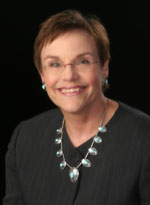 | |
| Bonnie Jennings |
"The program is designed for those who want to take their careers to the next level," says nursing professor and program coordinator Bonnie Jennings.
Jennings says that programs like these are sorely needed to give new leaders the skill set they need to deal with the challenges they will face in health care. "Traditionally, nurse leaders have not had formal leadership training—those skills were learned on the job. The way we've done things in the past, however, isn't going to work for tomorrow. You can better influence the direction of change, for example, if you study ideas about change and develop the communication, negotiation, and relationship skills needed for effective leadership."
She adds that the program aims to provide students a solid theoretical understanding of scientific principles related to leadership, along with practical, how-to knowledge—ranging from running a meeting to influencing superiors, subordinates, and peers as well as leading outside the organization in the industry as a whole.
Jennings says that students in the program will learn the inner workings of leading hospital systems, government agencies, and nonprofit organizations by interacting with nursing executives within Emory Healthcare (EHC) and partner organizations such as the CDC and Georgia Tech's Health Systems Institute.
In addition to EHC leaders, guest lecturers will include faculty from medicine and public health and executives from companies such as Cerner Corporation, Virtua, and Gentiva Health Services, among others.
Jennings and Nate Spell (chief quality officer in Emory University Hospital) currently co-lead an elective on quality and safety in health care for nursing, public health, and medical students. This course will be part of the curriculum for the new master's program and helps illustrate its interdisciplinary direction and underpinnings.
"Although the program initially will focus on educating nurses, the goal is to quickly move the program into an opportunity where health care leaders from numerous disciplines can be educated and prepared together," says Jennings. "This vision is important to foster the kind of communication and collaboration needed for effective leadership in the 21st century."—Jasmine Hoffman
Building a new profession One in a series of profiles of people in the Woodruff Health Sciences Center
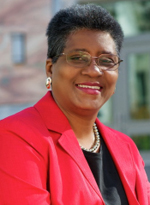 | |
| Marquitha Mayfield |
|
According to Marquitha Mayfield, the physician assistant (PA) profession has seen many changes since 1976, when she graduated in the fourth class of Emory's PA training program. Mayfield was working in a drug abuse education project in Atlanta when she heard about the new Emory program, the first in the state.
Mayfield used her new degree to work in clinical research, vascular surgery, family planning, ophthalmology, and community health at Emory and other sites across Atlanta. In 1991, the growing Emory PA program was looking for someone to coordinate the clinical courses students take during the first year of their 27 months of training. Mayfield, who at the time was teaching history-taking and physical exam skills at Morehouse School of Medicine, came home to Emory.
As senior academic coordinator, Mayfield supervises curriculum activities—developing instructional materials, giving lectures, scheduling other instructors, setting up clinical experiences with mentors as well as preceptors for the first year, and ensuring that students are learning everything they will need to begin their clinical rotations. Mayfield is also course director for the physical exam skills course and module director for training in cardiovascular medicine, dermatology, and renal medicine/urology.
One thing she no longer has to do is explain what PAs are, a big issue when she began her career. Today there are 2,000 PAs in Georgia, board-certified to practice medicine as part of a physician-directed team. PAs are actively involved in diagnosing and treating common diseases and providing outpatient and inpatient care, emergency care, preventive health services, and patient education. They also order and interpret tests and write prescriptions. According to survey data from Kaiser Permanente, patients increasingly embrace the idea of a knowledgeable practitioner working under the supervision of a physician and able to spend more time with them, freeing physicians to focus on the most difficult cases.
Recruitment also is much easier today than in the past, says Mayfield, who helps with student selection. Consistently ranked in the top five programs in the nation (currently No. 4), the Emory PA program received more than 1,000 applications for the class of 2014's 58 slots. When Mayfield was a student, many entering PAs nationwide were former medical corpsmen who had demonstrated in Vietnam battlefields what extraordinary medical care well-trained mid-level professionals could provide. As PAs became better known, as reimbursement changed to recognize their contributions to the medical team, and as well-paying, satisfying jobs became widely available, many older students opted for PA as a second career. Today, says Mayfield, students represent a mix of new college graduates and second-career students.
The field also is broadening, with PAs expanding into many roles in critical care medicine, research, academic medicine, and administration. Affiliated PA programs at Emory include a cardiothoracic surgical residency, a dual Master of Medical Science (MMS)/Master of Public Health for PAs, and an MMS program in anesthesiology with a special fast-track for PAs.
"I feel privileged to have contributed early on to such a quality program at Emory and to the PA profession in general," says Mayfield. "All indicators—the aging population, physician shortages, and changing reimbursement—suggest considerable growth and a bright future for this field."
| |
 |
|
From the Executive VP
Support staff underpin WHSC successes
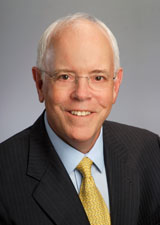 | |
| Wright Caughman |
|
This issue of Health Sciences Update is, as always, a veritable "who's who" of truly outstanding Woodruff Health Sciences Center (WHSC) faculty—the physicians, educators, and scientists who are providing cutting-edge patient care, training the next generation of medical professionals, and pioneering the breakthroughs that enable us to save and improve lives. These colleagues deserve our respect, our admiration, and our appreciation, but I think they would all agree that they don't achieve all these great things on their own. The equally admirable—but all too often unsung—heroes of the Woodruff Health Sciences Center are the support staff who underpin every achievement we celebrate.
We should never forget that behind every touted accomplishment by a member of our faculty, there are administrative professionals who have kept the daily operations of the office running smoothly, development officers who have helped to raise funding for the project, communications staff who have shared the good news of our success with the public, finance officers who have ensured that the project's fiscal resources were handled judiciously, custodial staff who have kept the team's work spaces clean and comfortable, and many more outstanding people besides. These colleagues, along with all the technicians, research, education, and clinical support staff in WHSC make the accomplishments we celebrate in Health Sciences Update each month possible. They keep us on time, on budget, on task, and on message.
As you read this issue, I hope you will enjoy learning more about some of the exciting work that's being done here in WHSC and that as you read each article, you'll remember all the people who had a hand in making each achievement possible—both those who are sung and those who are unsung.
My heartfelt thanks go out to all the staff working diligently and meaningfully behind the scenes of all of our successes.
Please direct questions and comments to evphafeedback@emory.edu.
In brief
Emory reaches agreement with Southern Regional Health System
Emory Healthcare has signed a management services agreement
with Southern Regional Health System that goes into effect Oct. 1 with the following terms:
• Southern Regional's quality programs will blend with Emory's, and Emory will work on implementing its quality programs and initiatives at Southern Regional.
• Southern Regional's quality, financial, and operational direction will be established with guidance from Emory Healthcare, but governance will remain with Southern Regional's current board. While Emory Healthcare will provide financial direction, Emory will not own the Southern Regional facility, and their employees will remain Southern Regional employees.
• Emory Healthcare will strengthen physician partnerships and its presence in the Southern Crescent, while increasing access for patients.
• Collaboration with some of Emory University's health-related education programs will be available to Southern Regional in the future.
New board members
The Woodruff Health Sciences Center Board recently added Steven Lipstein as a member and Allen Dollar (cardiology) as faculty counselor. The Emory Healthcare Board recently added three new members: Charles (Rick) Finley (surgery), Costas Hadjipanayis (neurosurgery), and Katherine Heilpern (chair, emergency medicine).
New named professorship in palliative medicine
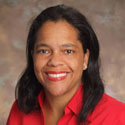 |
|
| Tammie Quest |
|
| |
|
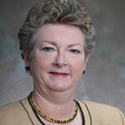 |
|
| Roxann Arnold |
|
An anonymous donor has made a seven-year commitment to the medical school to establish a named professorship in palliative medicine that will be awarded to Tammie Quest, director of the Emory Palliative Care Center. The professorship is named for Roxann Arnold, director of patient financial services, in honor of her 37-plus years of service in Emory Healthcare.
Stent strategy: 25 years
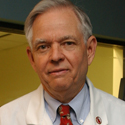 |
|
| John Douglas |
|
September 3 marked the 25th anniversary of this country's first placement of a coronary stent, performed by Emory cardiologist John Douglas and colleagues. "In this patient," says Douglas, "the coronary artery had become totally blocked, initiating a heart attack. The stent completely interrupted the attack. The FDA approved stent implantation at Emory in 10 patients as a research study, and the favorable results led to FDA approval of coronary stents. This made angioplasty safer, reducing the need for bypass surgery from 50 per 1,000 patients to less than one per 1,000." Douglas adds that the first U.S. patient to receive a coronary stent 25 years ago "is currently alive, well, and fully active."
Notable
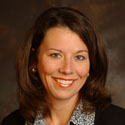 | |
| Janet Christenbury |
|
Janet Christenbury is director of media relations for Emory Healthcare. She previously headed media relations for Emory University Hospital Midtown.
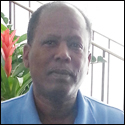 |
|
| Tony Glover |
|
Tony Glover (senior maintenance mechanic at Emory University Hospital) accepted a trophy earlier this month on behalf of his team, Tony's Tigers, which was No. 1 in the 2012 Emory Healthcare softball season. Another team, the Black Sox, led by John Carter (patient services coordinator at Emory Clinic) won the season's final championship game against the Regulators, led by Johnny Robinson (transport attendant in EUH lab support). EHC softball, which extends from April through July, is one of many activities sponsored by EHC's volunteer GREET (great reasons to get Emory employees together) Committee, which includes EHC nights at Six Flags, Hawks and Falcons games, and other events.
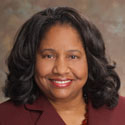 | |
| Mary Gullatte |
|
The book Nursing Management: Principles and Practice, edited by Mary Gullatte (chief nursing officer, EUH Midtown), received an honorable mention from the American Medical Writers Association.
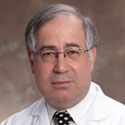 | |
| Ira Horowitz |
|
Ira Horowitz was appointed chair of the Department of Gynecology and Obstetrics and section head of gyn-ob in the Emory Clinic. He served as interim chair since fall 2010. Horowitz also holds the John D. Thompson Chair, named for a former long-term gyn-ob chair and medical school alumnus. Read more.
 | |
| Gregory Martin |
|
Gregory Martin (pulmonology) has been named director of the Center for Health Discovery and Well Being, a component of the Emory-Georgia Tech Predictive Health Institute. Based at Emory's Midtown campus, the center combines a research core with clinical testing for interventions based on predictive biomarkers of health, health risk, and prognosis aimed at keeping people healthy. Read more.
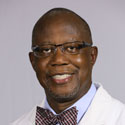 | |
| Bruce Mitchell |
|
Bruce Mitchell is director of hospital medicine at EUH Midtown. Emory has the largest academic hospital medicine program in the nation. Read more.
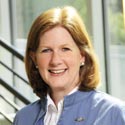 |
|
| Lisa Newbern |
|
Lisa Newbern (director of public affairs, Yerkes) was appointed as a family adviser to the Georgia Council on Developmental Disabilities. She also recently received the Public Relations Society of America's Chapter Champion Award. Read more.
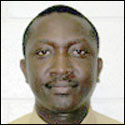 |
|
| Adedapo Odetoyinbo |
|
Adedapo Odetoyinbo (medicine) is chief medical officer of Emory John's Creek Hospital. He was previously medical director of care coordination at EJCH.
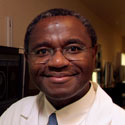 |
|
| Nelson Oyesiku |
|
Nelson Oyesiku (neurosurgery) is chair of the American Board of Neurological Surgery and a member of the residency review committee for neurosurgery of the Accreditation Council for Graduate Medical Education.
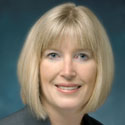 |
|
| Joyce Soule |
|
Joyce Soule is chief nursing officer at Saint Joseph's Hospital. She previously served at Medical City Dallas Hospital, a 680-bed Magnet redesignated hospital in Texas.
Larry Young (Yerkes) has co-authored The Chemistry Between Us: Love, Sex, and the Science of Attraction, out this month. Read more in Emory Report.
Events
Oct 12: Genes, Biologics, Biomarkers: Are they Patentable? James B. Williams Medical Education Bldg, 170A, 1:00-2:00. RSVP to ashley.e.myers@emory.edu.
Oct. 13: Second Annual Winship Win the Fight 5K Race. More info.
Oct. 26: Department of Medicine Research Day, Cox Hall ballroom, 8 a.m. - 4:30 p.m. Info and RSVP.
Oct. 30: EHC Quality Conference, Cox Hall 3rd floor ballroom, 7:30 a.m. - 12 p.m. Registration required. Contact terrance.anderson@emoryhealthcare.org
Nov. 1: Ken Brigham and Michael M.E. Johns will sign copies of their new book, Predictive Health: How We Can Reinvent Medicine to Extend Our Best Years, WHSCAB plaza level, 5 p.m. - 6:30 p.m. Read review in Wall Street Journal.
Dec. 6-7: 8th annual Predictive Health symposium. WHSCAB Auditorium. More info. |

